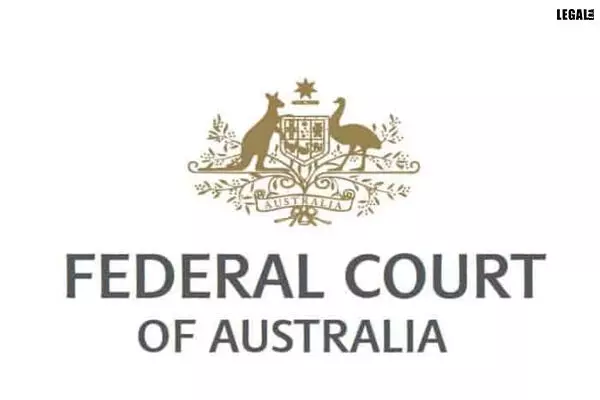- Home
- News
- Articles+
- Aerospace
- Agriculture
- Alternate Dispute Resolution
- Banking and Finance
- Bankruptcy
- Book Review
- Bribery & Corruption
- Commercial Litigation
- Competition Law
- Conference Reports
- Consumer Products
- Contract
- Corporate Governance
- Corporate Law
- Covid-19
- Cryptocurrency
- Cybersecurity
- Data Protection
- Defence
- Digital Economy
- E-commerce
- Employment Law
- Energy and Natural Resources
- Entertainment and Sports Law
- Environmental Law
- FDI
- Food and Beverage
- Health Care
- IBC Diaries
- Insurance Law
- Intellectual Property
- International Law
- Know the Law
- Labour Laws
- Litigation
- Litigation Funding
- Manufacturing
- Mergers & Acquisitions
- NFTs
- Privacy
- Private Equity
- Project Finance
- Real Estate
- Risk and Compliance
- Technology Media and Telecom
- Tributes
- Zoom In
- Take On Board
- In Focus
- Law & Policy and Regulation
- IP & Tech Era
- Viewpoint
- Arbitration & Mediation
- Tax
- Student Corner
- AI
- ESG
- Gaming
- Inclusion & Diversity
- Law Firms
- In-House
- Rankings
- E-Magazine
- Legal Era TV
- Events
- News
- Articles
- Aerospace
- Agriculture
- Alternate Dispute Resolution
- Banking and Finance
- Bankruptcy
- Book Review
- Bribery & Corruption
- Commercial Litigation
- Competition Law
- Conference Reports
- Consumer Products
- Contract
- Corporate Governance
- Corporate Law
- Covid-19
- Cryptocurrency
- Cybersecurity
- Data Protection
- Defence
- Digital Economy
- E-commerce
- Employment Law
- Energy and Natural Resources
- Entertainment and Sports Law
- Environmental Law
- FDI
- Food and Beverage
- Health Care
- IBC Diaries
- Insurance Law
- Intellectual Property
- International Law
- Know the Law
- Labour Laws
- Litigation
- Litigation Funding
- Manufacturing
- Mergers & Acquisitions
- NFTs
- Privacy
- Private Equity
- Project Finance
- Real Estate
- Risk and Compliance
- Technology Media and Telecom
- Tributes
- Zoom In
- Take On Board
- In Focus
- Law & Policy and Regulation
- IP & Tech Era
- Viewpoint
- Arbitration & Mediation
- Tax
- Student Corner
- AI
- ESG
- Gaming
- Inclusion & Diversity
- Law Firms
- In-House
- Rankings
- E-Magazine
- Legal Era TV
- Events
Australian Court holds no copyright in neoprene tote bag.
"At best, the Full Court considered that the design of the SOE Bag was an "evolution in styling" rather than a new artistic design."
The Full Federal Court upheld the decision of the lower to hold that copyright does not exist in the State of Escape (SOE) tote bag, and is therefore not protected under the Copyright Act.
The SOE manufactured and sold a range of bags since 2013 including tote bags designed with perforated neoprene fabric and sailing rope handles. It brought several claims against Ms. Schwartz, who began selling her range of perforated neoprene tote bags in 2015.
The Federal Court in 2020 rejected SOE's contention that Ms. Schwartz's bags were infringing the copyright of SOE. It was observed that there does not lie copyright protection in SOE's bags on the grounds that such bags are not works of artistic craftsmanship. It was also observed that SOE failed to establish that there were enough substantial similarities between the two bags.
The Federal Court concluded by stating that the SOE bags were indeed works of craftsmanship, but not works of artistic craftsmanship, therefore the question of Copyright infringement does not exist.
Aggrieved by the decision of the Federal Court, SOE filed an appeal to the Full Federal Court arguing that the lower court placed too much weightage on the functional aspects of the bags and no weightage was given to the aesthetic appeal of the SOE Bag, the artistic effort that went into designing it and its artistic quality as a whole.
The main question before the Full Court was whether the primary judge erred in holding that State of Escape's tote bag (SOE Bag) was not a work of artistic craftsmanship within the meaning of the Copyright Act 1968 (Cth), and therefore not protected by copyright.
However, the Full Court rejected the arguments of SOE and upheld the decision of the Federal Court. It was stated that the functional considerations outweighed the aesthetic considerations of the bags.
Placing reliance on the case Burge v Swarbrick (2007) 232 CLR 336, the Full Court observed as a general rule that the more functional considerations (such as the durability, quality, and size of the bag) dictate the form of a product, the less likely it will be the product is of the kind of substantial artistic effort and expression which characterizes a work of artistic craftsmanship.
The Full Court emphasized that the question of whether a work is a work of artistic craftsmanship is to be determined by reference to the work itself and the extent to which any artistic expression is unconstrained by functional considerations.




